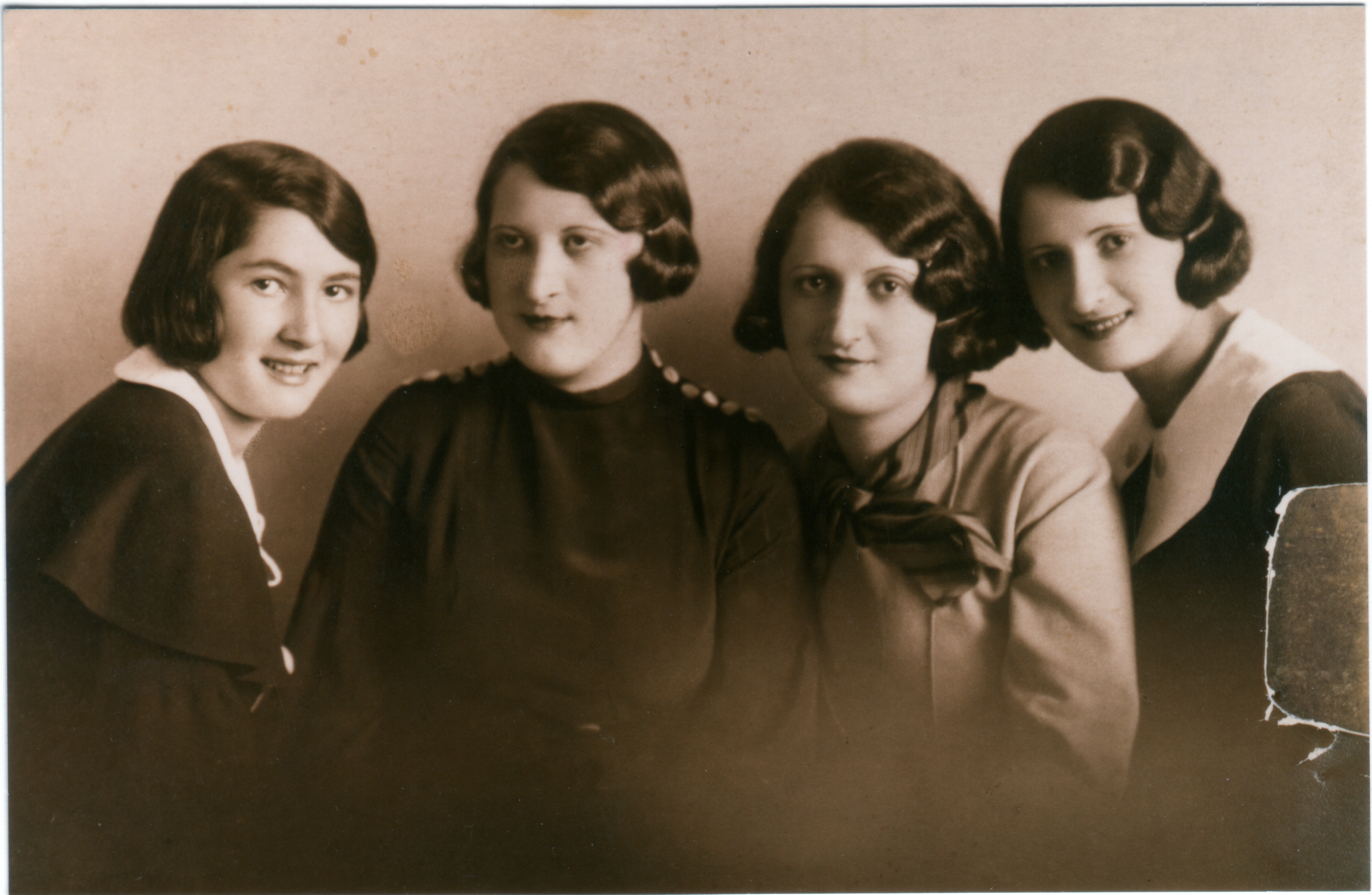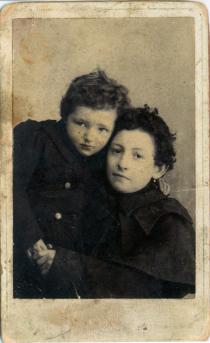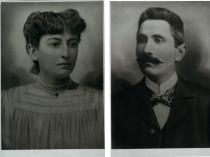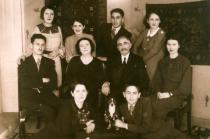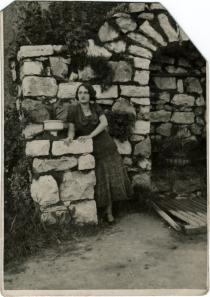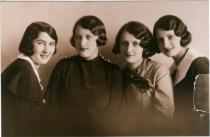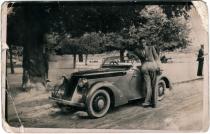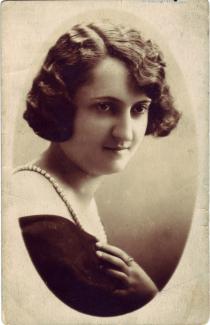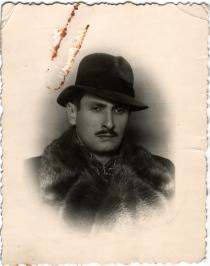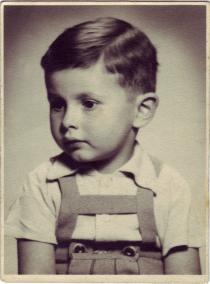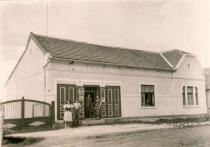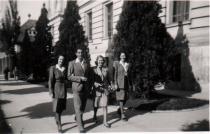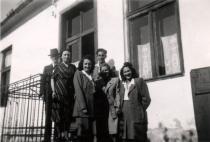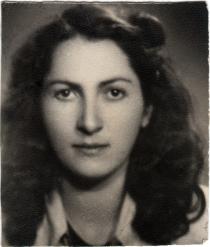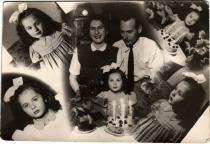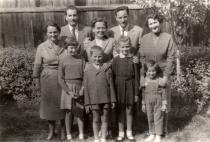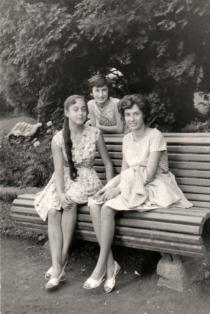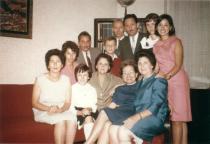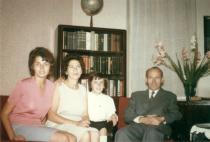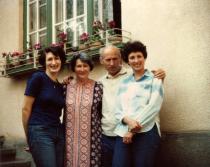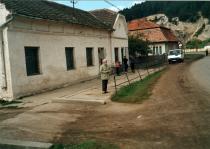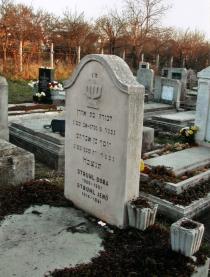This photo was taken in 1938, presumably in Gyergyoszentmiklos. Here you can see me with my sisters. From left to right: me, Hermina Struhl, Dora Struhl and Margit Gluck, nee Struhl.
Dorika stayed home in spite of the fact that she should have studied at a university, because she was extremely clever; she was the cleverest of our family. Her susceptibility was remarkable. She stayed home, for my father was so old, he wasn't able to run the shop anymore, and Dorika took it over. She stayed home, and sacrificed herself, that's how this can be interpreted, when such an intelligent person should have continued her studies, but instead remained where she was. Well, I oughtn't to say it was a backward, insignificant place, because Gyergyoszarhegy was quite a big village, but it was a sacrifice of her anyway. She transformed my father's shop, which was close to failure, into a prosperous and booming business, so to speak. She saved it from the edge of bankruptcy, it was insolvent, but she came to an agreement with the creditors, and she assumed to pay within a certain period. Later it turned into a flourishing shop.
When Hermin started to become a sewer, she worked in Gyergyoszentmiklos. After a few years she went to Bucharest, because we had an aunt there who invited her to come, because she thought Hermin was a much too excellent sewer to work in the country. My two sisters, Hermin and Margit, went to Bucharest together. My sister Hermin was the head of the showroom, and Margit worked with her, but she was only sewing. Hermin tailored and tried on dresses in her showroom; she employed several girls. They lived in Bucharest until the Second Vienna Dictate.
In 1940 Hermin came back to Gyergyoszarhegy, because she didn't want to be separated from her parents by a borderline. Margit had married before that. Margit's husband was called Matyas Gluck. Before getting married, he worked in the catering trade in Brasso. The parents of Matyi [Matyas] also lived there, in Brasso. He spent many years in Paris, but then came home. In fact he was a goldsmith, a jeweler by his original profession; that was his basic trade. In those times there were Iron Guard actions in Bucharest, and Margit's husband was an illegal communist, and he was afraid of being caught by the Iron Guard, as that would have had consequences. So they fled Bucharest and went to Csernovic. They thought they would be safe there.
